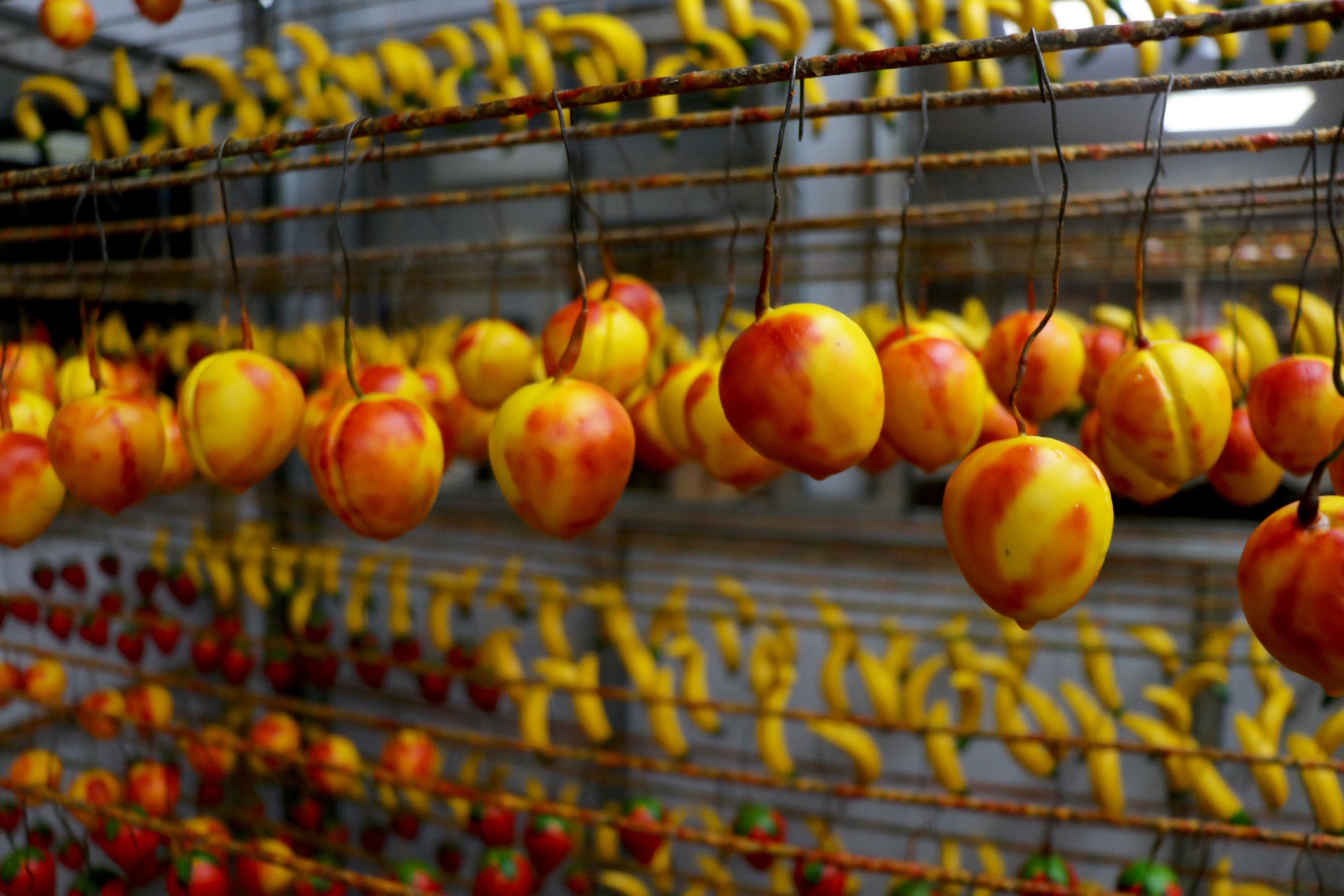© Turkuvaz Haberleşme ve Yayıncılık 2024
Fruit-scented soaps, produced using the traditional Ottoman method in northwestern Turkey's Edirne, have stood the test of time as they continue to provide a livelihood for hundreds of families even centuries after their development.
The soaps, which are in great demand in Turkey, are also popular around the world. Edirne-based soap production company EDMIS exports them to countries like the U.S., Russia and Germany.
The soaps have been a tradition in Edirne since the 17th century. In the production process of the soaps, locals make dough-like mixtures of musk, amber and rose scents before molding them into the shapes of different fruits.
Today, the craft continues at the EDMIS production center and is even taught to people at the courses offered by the Edirne Public Education Center.
EDMIS founder and Production Manager Can Ürenli and his wife Sermin Ürenli, who works alongside him, are delighted to be able to pass the traditional methods to new generations. They are happy to see the great interest that the historical product has received.

The Ürenlis combine the Ottoman handicraft methods with a few modern technologies to export the soap to different countries. "We have improved this craft in some ways and integrated it into modern markets and we continue in that trajectory. We have had a significant amount of uptrend, particularly in the early stages," Can Ürenli told Demirören News Agency (DHA).
"Like everyone else, we have been affected by the pandemic. This product is more like a souvenir sold in gift shops, so it was particularly susceptible to restrictions. However, we continue to keep the tradition alive and strong."
Sermin Ürenli said: “We think we should take this handicraft profession even further. We believe that it should exist as an important tradition of Edirne, as long as the city stands. Our aim is to make the most beautiful and most natural version of the product."
She also touched upon the difficulties of creating an original product and the immense labor it requires to handcraft every unit. "It is a unique product. It is not a soap you can find anywhere in the world. It requires many hours of manual labor. After a shape has been given to the soap, it needs to go through five or six more processes."
"It involves a lot of handcrafting and devotion. Many people who try making this product quit shortly after. We are working with all our power to keep the tradition going," Ürenli said.
